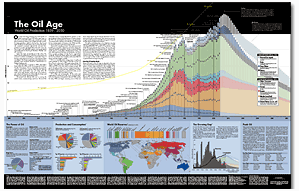Jon Miller has been posting thoughts on chapters of Gemba Keiei by Taiichi Ohno for quite some time. His latest post in on chapter 23 (of 37): Producing at the Lowest Possible Cost. The series of posts provide great doses of management wisdom. As he said in the first post: "As I re-read this book in the original Japanese, I will summarize the nuggets of wisdom from each chapter in Mr. Ohno's book."
Some great examples, If You Are Wrong, Admit It:
If you fancy yourself a Lean thinker go ahead and test your beliefs the next time you think you are right. If you are wrong, admit it. Make Mr. Ohno proud.
Great idea. The PDSA is a great tool to help test your beliefs (when related to an idea for improvement). Make sure you predict and then test your prediction.
Wasted Motion is Not Work:
Toyota people think motion is work and Ohno struggled to convince people that this was wrong. Human motion is only work when you add your wits to what you are doing, says Ohno.
Toyota Made the Kanban System Possible:
The suppliers were included in the kanban system at the very end "to minimize confusion to our suppliers". Ohno gives an example of another Toyota manager who caused problems for a supplier who was forced onto a kanban system even before the Motomachi factory at Toyota had succeeded with kanban. Ohno makes a strong statement that you should not implement a kanban system with your suppliers before you have successfully implemented the kanban system in-house. This is advice that is seldom heeded today.
Related:



